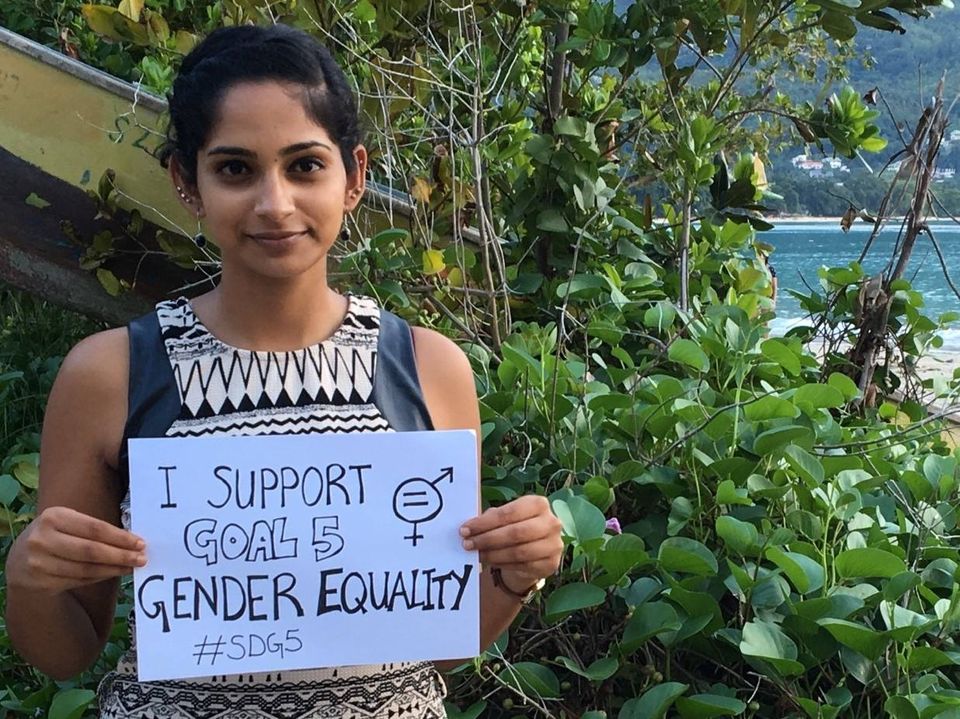UN YOUTH SEYCHELLES
|
SDG 5:GENDER EQUALITY SDG 5 is about achieving gender equality and female empowerment. While the world has achieved some progress toward this goal under the UN Millennium Development Goals, women and girls continue to suffer discrimination and violence in every part of the world. The lack of equality between women and men is a serious obstacle to sustainable development and growth. This goal is about providing women and girls with equal access to education, health care, decent work, and representation in political and economic decision-making processes. This goal is about eliminating violence, discrimination, and harmful practices toward women. This will undoubtedly benefit societies and humanity at large, and fuel sustainable economies. GLOBAL PROGRESS SO FAR
Gender equality and women’s empowerment have advanced in recent years. Girls’ access to education has improved, the rate of child marriage has declined and progress has been made in sexual and reproductive health and reproductive rights.
BUT THERE IS MORE TO BE DONE
MEN – I would like to take this opportunity to extend to you a formal invitation – gender equality is your issue too. Discrimination against women persists, directly and indirectly, through laws and policies, social norms and practices, and gender-based stereotypes. Imagine how terrifying it is for your self-worth to be entangled with what others think of you. Let’s change that. WHAT SDG 5 MEANS FOR SEYCHELLES The high level of social development and the absence of blatant discrimination against women here in Seychelles lead to the assumption that gender equality has been achieved. However, challenges still exist. These include:
There is also a perception that boys and men are being marginalised in the provision of services. This needs to be rectified through reinforcing the role of men and boys as partners in promoting gender equality. Violent crime, family disintegration, child abuse, poverty, domestic violence – all of the issues that affect our society have profound gender dimensions. WHAT IS THE GOVERNMENT DOING ABOUT IT?
These measures signal the Government’s continued commitment to the attainment of Constitutional rights and gender equality as a cornerstone for ending poverty and achieving long-term sustainable social change by meeting the aspirations of all Seychellois. WHAT CAN YOU DO ABOUT IT? For starters, don’t be like Gaston from Beauty and the Beast (pictured above). For the goals to work, people need to know about them. We need you to help us tell everyone about #SDG5, the #GlobalGoals, and advocate #Sey4SDG. Our country will only meet these SDGs if we fight for them, so SHARE all the knowledge you got today. Tell your friends, your local community. Allow the information shared today to give you a new perspective. Perhaps now you are more aware of how the stereotypes of women we often use are damaging. Join the global conversation. Use the hashtags, download the SDG app, visit globalgoals.org – help make the SDGs famous and tell the leaders of the world that this is what we want. You can also visit http://www.globalgoals.org/take-action/ and choose an NGO to get involved with: Global Citizen, Save The Children, UNICEF, UNDP – the choice is yours. Every voice should be heard – make yours count. Contributed by Nandita Nair Leave a Reply. |
AuthorReza Moustache ArchivesCategories |

 RSS Feed
RSS Feed
21/3/2021
0 Comments